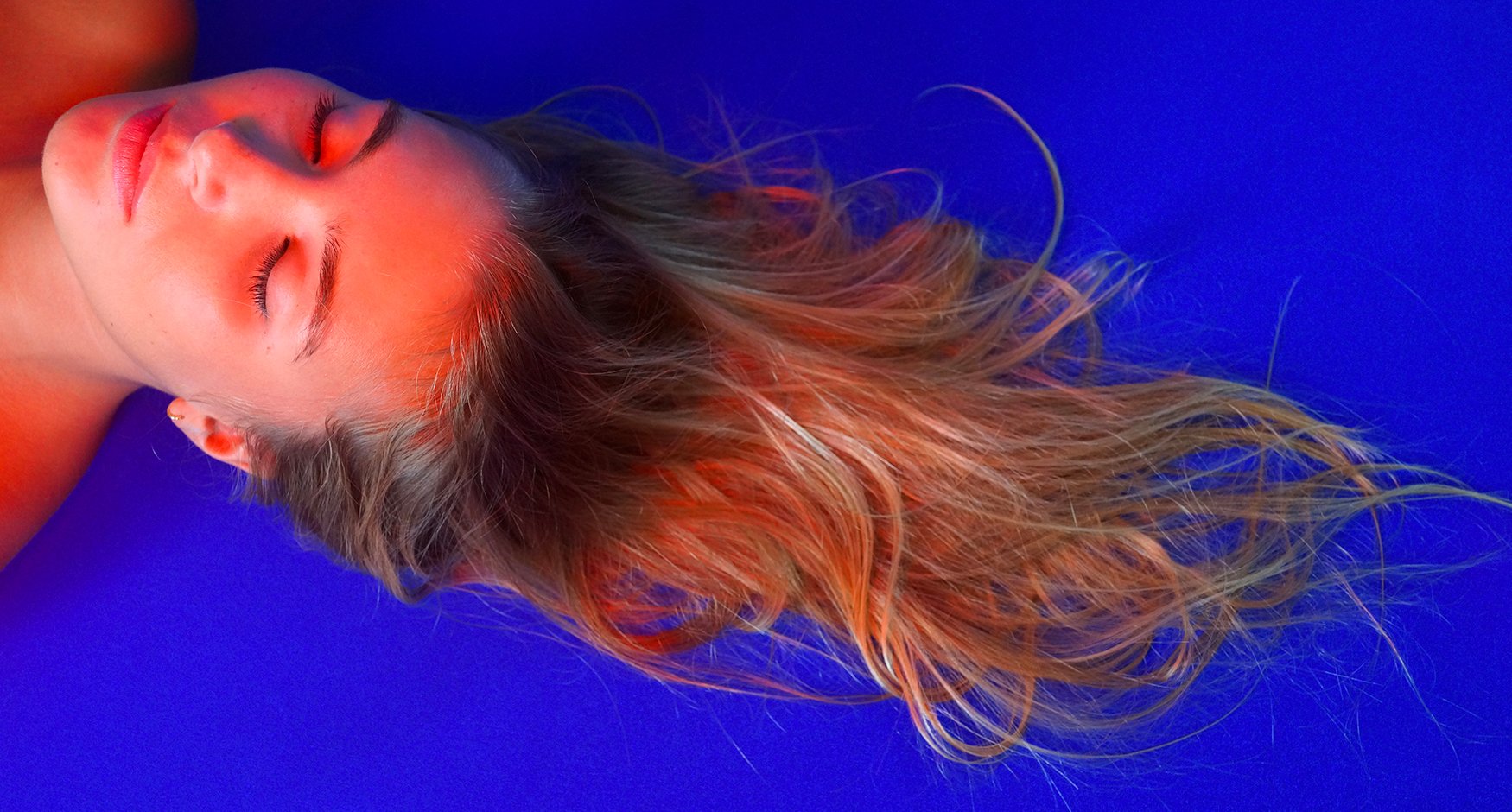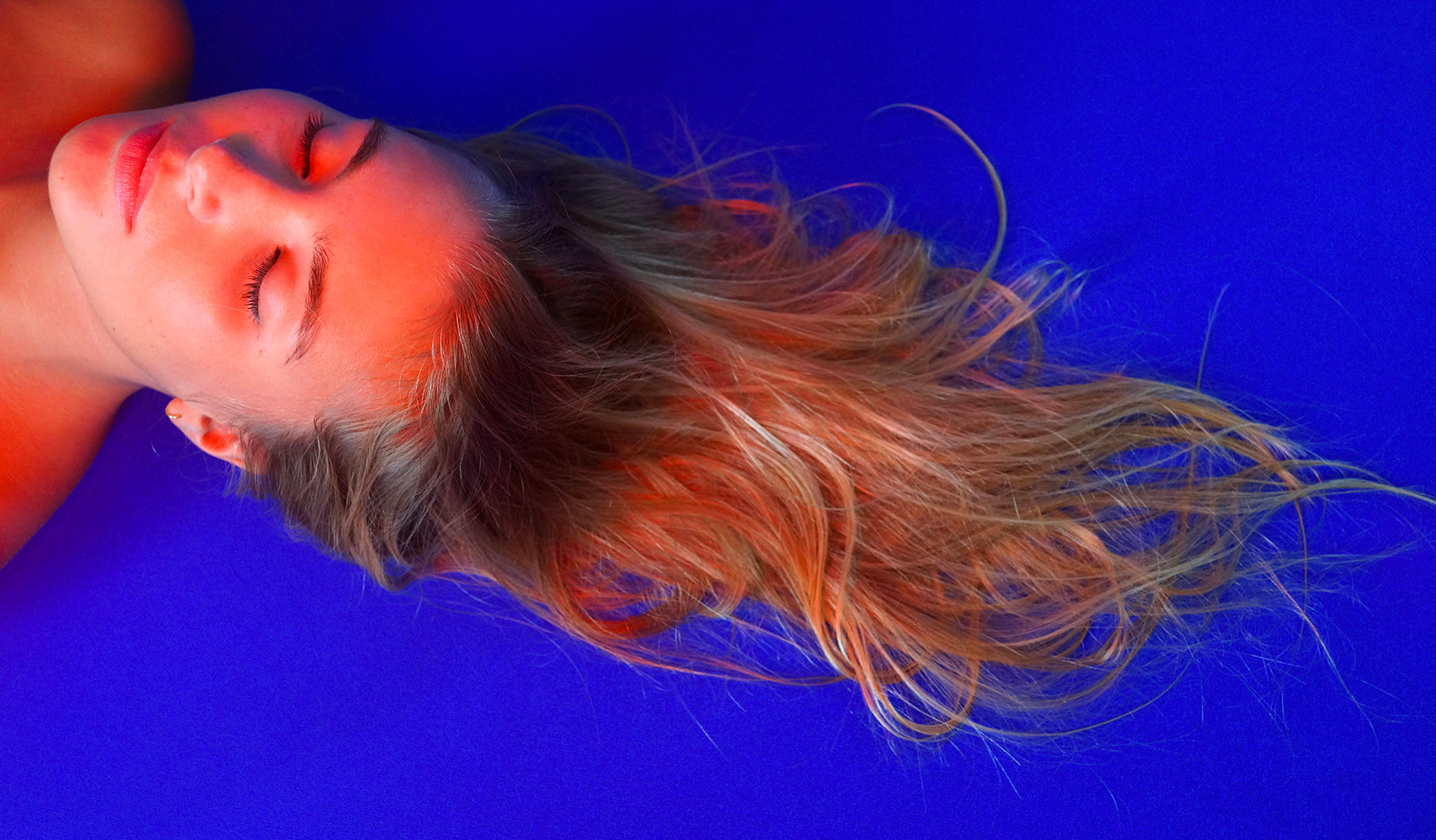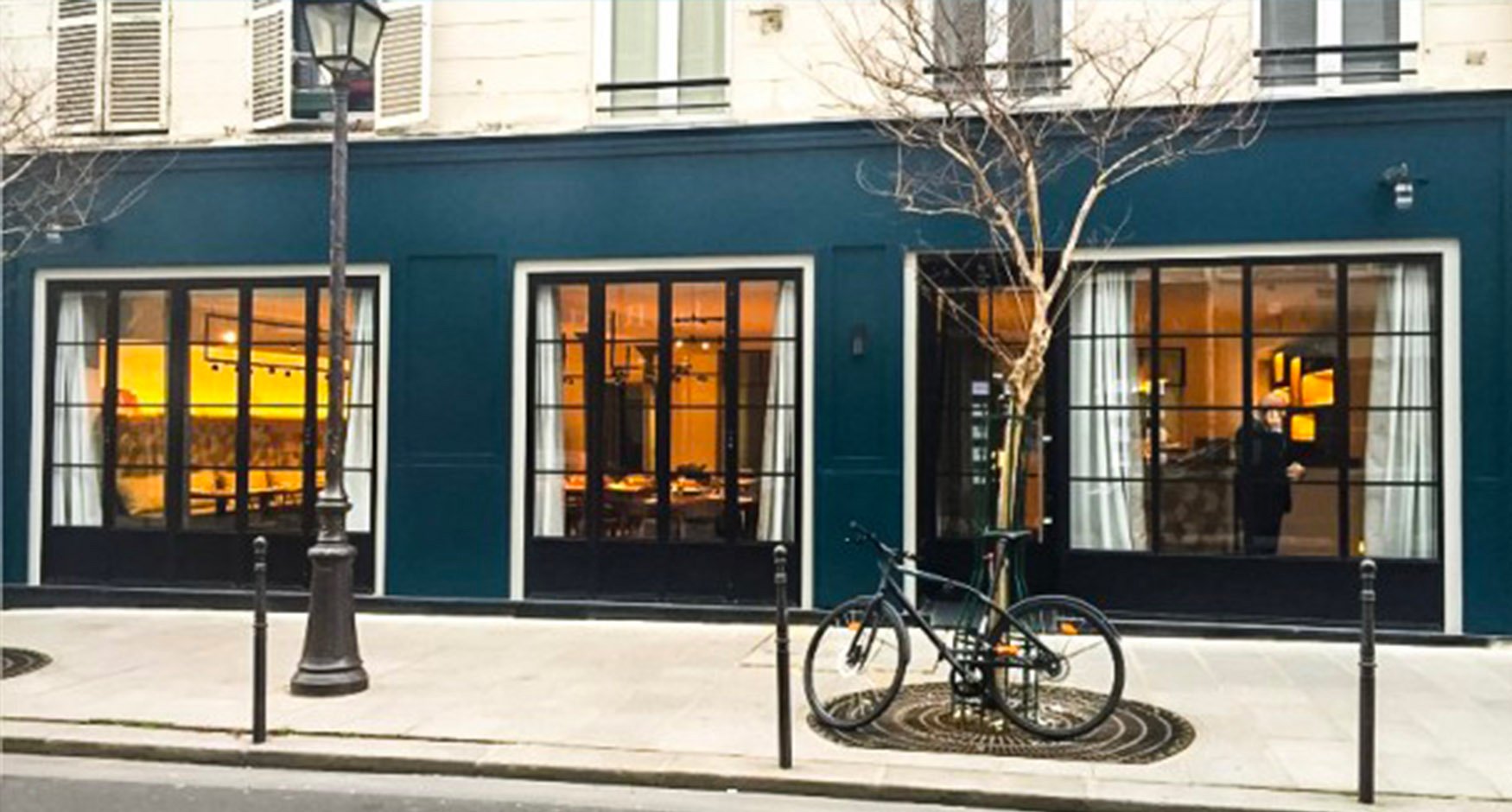
L'importanza di essere profumati
Profumo in tempi di distanziamento sociale

In questo giorno, il primo luglio, le strade di Parigi sono grigie.
Una cortina di pioggia è caduta sulla città, un'atmosfera umida puzza di elettricità, un cielo lugubre veglia su un popolo di comuni supereroi, mascherati ma senza mantello, che corrono in giro cercando di non bagnarsi e il suono delle gocce che cadono sui ciottoli trasportate da folate di aria fresca porta una nuova vita a una città immersa nella quiete.
Sì, quest'anno il monsone è arrivato in anticipo e per la prima volta in mesi che sembravano anni, le persone hanno tolto le mascherine... e hanno sentito di nuovo l'odore della pioggia.
Che sensazione curiosa, che sensazione meravigliosa: inalare, inspirare, finalmente assorbire i micro profumi del giorno, odorare. Perché le giornate sono state lunghe per tutti noi, confinati, costretti a guardare, immobili, i fiori primaverili che svanivano; eppure eccoci qui, fuori e di nuovo vivi, e mentre torniamo ai rituali di ieri, prendendo il rossetto e sistemandoci la barba, una domanda vola sulle labbra di tutti: dovrei indossare di nuovo il profumo?
E la nostra risposta è SÌ. Indubbiamente sì. Indubbiamente sì. Assolutamente, evidentemente SÌ. Perché il profumo è più di un semplice cosmetico; un accessorio, un gesto superfluo aggiunto a un rituale mattutino già di per sé ingombrante per soddisfare la propria vanità. Il profumo è essenziale, ancora di più ora che siamo obbligati a stare lontani gli uni dagli altri.
Allora perché dovresti farlo?
- Per cogliere appieno l'attimo
Il nostro senso dell'olfatto è fondamentale per comprendere l'ambiente in cui viviamo e, sebbene ci sia di nuovo permesso di passeggiare all'aperto, il fatto di dover indossare una mascherina ci impedisce di percepire questo mondo, il che è sufficiente a disorientarci. Perché, in effetti, nessun senso è più intimo, più primordiale dell'olfatto. Dei cinque, è tra i primi a svilupparsi completamente nell'utero, il che significa che i feti sentono l'olfatto prima ancora di vedere o sentire, il che spiega il modo molto specifico in cui il nostro senso dell'olfatto si collega al cervello. Infatti, mentre tutti gli stimoli sensoriali vengono elaborati attraverso il talamo – che funge da centro di controllo, se vogliamo – prima di raggiungere la corteccia, gli stimoli olfattivi vanno direttamente dai nostri recettori nasali alla corteccia. Questo consente una rappresentazione più diretta e diffusa dello stimolo: ecco perché quando sentiamo un certo profumo, prima richiamiamo colori, sensazioni ed emozioni prima di associarlo a un ricordo preciso.
Questa stretta relazione limbica tra olfatto e corteccia è la ragione per cui alcuni odori sono intrinsecamente sgradevoli, perché rappresentano un pericolo per la nostra vita; è la ragione per cui ci sentiamo a nostro agio in luoghi che conosciamo olfattivamente ed è la stessa ragione per cui non sentiremo più il nostro profumo dopo un po' di tempo, il tempo che il nostro corpo ha impiegato per considerarlo "sicuro"; è la ragione per cui percepiamo immediatamente i cattivi odori in un dato ambiente, per cui sentiamo l'odore del posacenere freddo di qualcuno nonostante una candela profumata sia accesa, per cui sentiamo l'odore di urina stantia in qualche strada nonostante un mazzo di rose in un angolo. Ecco perché, intimamente, non saremo disturbati dagli "odori mattutini" del nostro partner. Non perché ci siamo abituati, ma perché il nostro corpo e il nostro cervello hanno capito che erano sicuri per noi .
Quindi, per cogliere appieno la giornata, bisogna annusarla. Bisogna sentire il profumo dei fiori di tiglio, rosa, gelsomino, lillà e glicine nell'aria per percepire l'arrivo della primavera. Bisogna sentire il profumo del petricore che sale dall'asfalto per percepire la profondità torrida dell'estate. Bisogna sentire le scie profumate che si sprigionano dai cappotti, dagli abiti e dai capelli delle persone, le zaffate floreali che fuoriescono dal fioraio, l'odore dei dolci che annuncia la prima ora del giorno, il metallo rovente, l'urina e il sudore per ricordare perché odi la metropolitana, gli aromi di ciliegia e tabacco per gustare un bicchiere di Château Jouvente, quello di mela cotogna e perpetuino per assaporare un bicchiere di Quarts-de-Chaume – e poiché non possiamo farlo, è essenziale continuare a sentire profumi e oli essenziali che si adattano alla giornata, alla stagione, all'umore. Non necessariamente per indossarli, ma per sentire e continuare a sentire tutte le fragranze di cui dovresti circondarti, per non perderti la tua primavera o la tua estate.
- Per continuare ad essere te stesso
Uno dei consigli più comuni che abbiamo letto durante il lockdown è stato quello di mantenere una routine abituale, ma ci si potrebbe chiedere quanto sia importante indossare giacca e cravatta mentre si lavora dal proprio salotto. Era forse per salvare le apparenze, e se sì per chi? Era forse per mantenere la mente lucida, e se sì per cosa? Questo sforzo di attenersi a una routine incentrata sul lavoro è servito solo come soglia per impedirci di scivolare verso un'inerzia che sembrava dannosa. Ma cosa succederebbe se usassimo questa routine, non come un modo per impedircelo, ma per permetterci di farlo? Per permetterci di riscoprire noi stessi, di esplorare e scoprire chi siamo e cosa è costitutivo del nostro sé quando siamo esclusi dalla società.
Così, lasciati soli, non c'è nessuno tranne noi e ogni passo della nostra routine quotidiana può essere visto come un modo per capire chi siamo e come interagiamo con il mondo. Perché continuiamo ad applicare un siero tonificante, perché abbiamo bisogno di un labbro idratato, di una barba ben curata, perché abbiamo voglia di socializzare o di fare esercizio fisico e perché abbiamo bisogno di un buon profumo? Nota che non ci sono risposte sbagliate, solo risposte giuste per te. Il profumo fa parte della nostra routine perché è un'espressione sensoriale di noi stessi, tanto quanto la nostra dizione, la nostra postura, il nostro abbigliamento: "nasciamo tutti nudi e il resto è drag" significa proprio questo, che qualsiasi cosa indossiamo o facciamo al nostro corpo è espressione di noi stessi, che tu indossi una maglietta scura della tua taglia sbagliata o uno splendido abito su misura dipende da come ti vedi e da come vuoi essere visto. Il profumo è più sottile in quanto è invisibile, intoccabile e viene percepito in modo diverso da ognuno.
Indossi il profumo per te stesso o per gli altri? Che sia l'una o l'altra cosa, è importante continuare ad applicare il profumo, sia per essere annusati dagli altri, sia per sfruttare questa stagione in cui non si indossano le mascherine per immaginare olfattivamente un nuovo "io" – più audace o più raffinato, più sottile o più esuberante, più rumoroso o più silenzioso, più saggio o più divertente. Poiché l'olfatto è così intimo e primordiale, è il modo migliore per scoprire nuove verità su noi stessi e, perché non sorprenderci di ciò che potremmo scoprire, che un certo profumo plachi il nostro temperamento o scateni un'intima passione amorosa? Il profumo è diventato sempre più costitutivo della personalità che abbiamo costruito fin da bambini, è un ulteriore strato aggiunto al nostro carattere e ora è il momento perfetto per provare a uscire dal nostro personaggio.
- Essere felici.
Il nostro recente desiderio di fare esercizio fisico, yoga e mangiare più sano deriva da una consapevolezza che il mondo occidentale ha abbandonato fin dal XII secolo: che nasciamo con un corpo e che questo è realmente partecipe della nostra felicità complessiva. Infatti, gli studi hanno dimostrato un legame diretto tra olfatto e benessere, o meglio tra anosmia, la perdita acuta o cronica dell'olfatto, e depressione. È interessante notare che questo legame è bilaterale: l'anosmia innesca ed è un sintomo della depressione e questo deriva proprio da quanto abbiamo detto prima, ovvero che gli odori non vengono elaborati dal talamo ma vanno direttamente alla corteccia, attivando un terzo delle connessioni neurali del nostro cervello per accendere emozioni precise legate a ricordi diffusi. Questo principio, secondo cui gli odori possono influenzare il nostro comportamento giocando con le nostre emozioni e i nostri ricordi, è il fondamento dell'aromacologia, mentre l'aromaterapia utilizza le componenti aromatiche degli oli essenziali a scopo curativo. La scienza che dimostra l'efficacia di entrambi i metodi è un segno astrologico, se mai ne avessimo bisogno di un altro, che il nostro corpo è fondamentale per il nostro benessere.
Inoltre, bypassando il talamo, gli odori bypassano anche la mente e le sue complessità, guarendoci inconsciamente, rendendoci felici senza il rischio di auto-sabotaggio. Tale potere di evocazione, di riportare improvvisamente in vita interi paesaggi, colori e sapori di terre straniere attraversate in passato, di dissotterrare emozioni intense quanto sepolte sotto cumuli di tempo, i "baci intimi della mia giovinezza, raffinati e golosi" cantati da Montaigne, questo potere di viaggiare attraverso la nostra mappa olfattiva personale verso terre e luoghi della nostra giovinezza e dei nostri sogni, questo potere di rifugiarci finalmente nel nostro luogo felice in qualsiasi momento – deve essere riconosciuto e utilizzato più spesso per il miglioramento di tutti, perché più lo useremo, più ci riconnetteremo con il nostro corpo. Il tempo che ci viene dato, se deve essere impiegato bene, deve essere dedicato a questo: diventare uno e riscoprire che i profumi e gli odori quotidiani sono fondamentali nella nostra ricerca della felicità e anche di più. Sono essenziali.
Mentre ci sforziamo di trovare ritmi e schemi regolari per far fronte alla natura in continua evoluzione del nostro mondo e delle nostre società, forse dovremmo prendere in considerazione l'idea di sostituire le nostre routine di bellezza con routine felici in cui le fragranze sarebbero al centro della scena; prestando attenzione a tutto ciò che è profumato e che non riusciamo più a sentire; a tutto ciò che è profumato e di cui prima non ci importava e usandolo come base per una nuova routine, uno stile di vita ispirato alle fragranze che infonderà felicità a ogni passo.



Commenta
Questo sito è protetto da hCaptcha e applica le Norme sulla privacy e i Termini di servizio di hCaptcha.